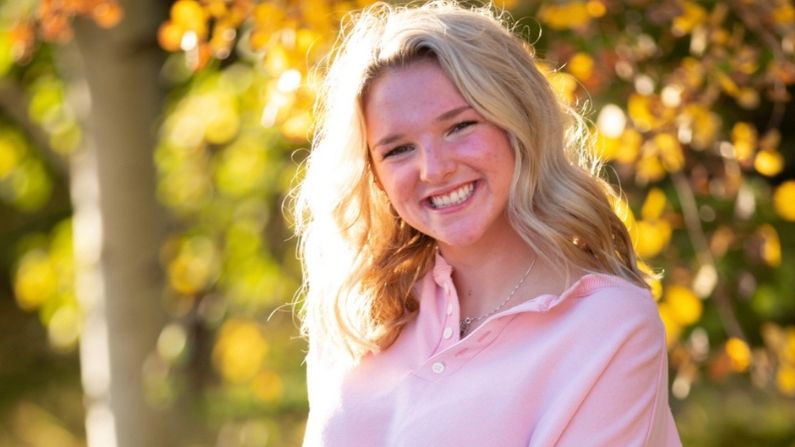Gen Z is the most racially and ethnically diverse generation in American history. It’s also generally viewed as the most progressive. But 17-year-old Zoe Crisp knows that those data points don’t tell the full story.
“I feel like a lot of people consider our generation to just be the generation that is super liberal, and a lot of people think that we’re kind of uneducated—we just see something and we’re like, ‘Oh yeah, now we’re liberal because we support that,’” Crisp said. “But honestly, I feel like when you look deeper into it, there is a lot of kids that have completely different viewpoints.”
Crisp self-identifies as liberal, but she said she’s been exposed to a range of political views growing up in Jackson.
“I grew up with a lot of people that did rodeo, so I feel like that really broadened my variety of seeing people on the political spectrum,” she said, adding that she feels like both her conservative and liberal-leaning friends share a lot of the same values.

“We do have pretty much the same idea of gun control and things like that, First Amendment rights, being able to speak out about what you believe in [and] also having like the right to protest.”
Crisp said she got interested in politics because she started to notice a growing divide between Democrats and Republicans across the country, especially over the past year. She’s also interested in the Black Lives Matter movement and criminal justice, the latter of which she plans to study starting this fall at the College of Charleston in South Carolina. So, after learning about the United States Senate Youth Program, which takes high school juniors and seniors from across the country and immerses them in the world of the U.S. Senate for a week, she decided to apply.
Crisp was selected to participate this year along with Grace Fain Steenbergen of Burns, in southeastern Wyoming. And even though this year’s program was held virtually for the first time, instead of in Washington, D.C., she said she enjoyed getting to meet and interact with a more racially diverse group of student peers and speakers than she is normally exposed to at home in Wyoming.
“Since Jackson’s pretty, like, a predominantly white community, I got to meet so many different diverse people, which was awesome,” Crisp said. “And that was something that I think I enjoyed the most ‘cause I’ve lived in Jackson my whole life and it’s just kind of like this bubble.”
Two students from each state, the District of Columbia and overseas Department of Defense-run schools for children of military families are chosen to participate in the Senate Youth Program every year. Students must show an interest in public service in order to qualify, and the participants each receive a college scholarship of $10,000, in addition to getting access to speakers including top government leaders and learning about how the Senate operates.
“I got to meet Senator Barrasso and Senator Lummis [of Wyoming], which was really cool because they’re both extremely conservative. But it was really cool to be able to see their ideas and how actually similar they are to a lot of Democrats,” Crisp said, adding that it was especially empowering to meet Lummis, who is Wyoming’s first woman senator.
“She was really, really nice and super kind and was very open on her ideas about how conservative she was and what she believes in.”
Crisp said both senators talked to her and Steenbergen, the other Wyoming delegate, easily, even like they were friends, during their meeting. She also shared their biggest piece of advice that struck a chord with her.
“They just talked about how it’s important to realize that you’re not going to have a concrete plan… I have been, like, the kind of person that’s like, ‘Okay, I need to figure out what I want to do and then I need to stick with it.’ But they were talking about how they switched things all the time.”
At the end of the program, Crisp said she’s still in more or less the same place politically. But it was refreshing to meet —and even agree—with people whom she never thought she would before.





